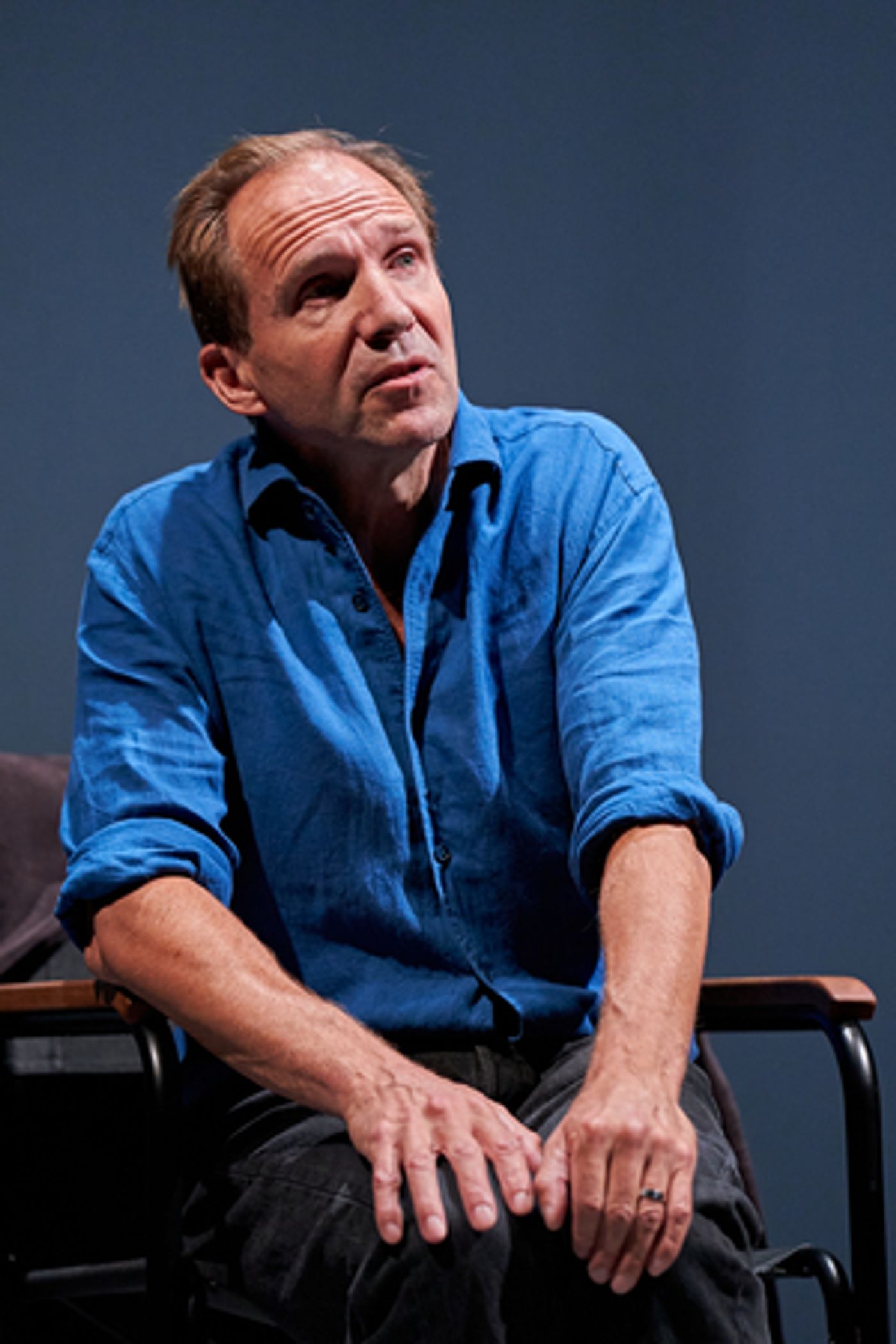Review Roundup: What are the Critics Saying About The Bridge Theatre's BEAT THE DEVIL Starring Ralph Fiennes
BEAT THE DEVIL marks The Bridge Theatre's official reopening after a hiatus of five and a half months due to the global health crisis.

The Bridge Theatre officially reopened its doors on 27 August 2020 after a hiatus of five and a half months due to the covid-19 pandemic, with David Hare's monologue Beat the Devil, a new play written as a response to the author's experience of contracting coronavirus. Ralph Fiennes makes his Bridge Theatre debut.
Nicholas Hytner directs with designs by Bunny Christie, lighting by Jon Clark, sound by Gareth Fry and music by George Fenton. Beat the Devil plays in repertoire at the Bridge until 31 October 2020.
On the same day that the UK government finally made the first of two decisive interventions that led to a conspicuously late lockdown, David Hare contracted Covid-19. Nobody seemed to know much about it then, and many doctors are not altogether sure they know much more today. Suffering a pageant of apparently random symptoms, Hare recalls the delirium of his illness, which mix with fear, dream, honest medicine and dishonest politics to create a monologue of furious urgency and power.
See what the critics are saying below...
David Benedict, Variety: Fiennes, 15 years Hare's junior, leads with Hare's own patient delivery and adds his own trademark controlled physicality. Hytner encourages him to suggest rather than act out the distress, which gives the writing an edge in charting the progress of the virus as it devastates Hare's body and mind. As the fever breaks, Fiennes gently shows Hare's joy at being alive, but the writing refrains from turning sentimental. "I don't have survivor's guilt," Hare explains. "I have survivor's rage."
Ava Wong Davies, Independent: Beat the Devil is peppered with familiar statistics and sentiments which are well known to anyone who's glanced at the news in the last five months. It doesn't try to say anything new, exactly, but rather feels like an attempt at keeping a theatrical account of those first few weeks of lockdown - a time capsule, of sorts. It seems sometimes like Hare is attempting to explain the situation to someone who has completely missed the pandemic - rather than engage with an audience who are living through it too. And Fiennes, despite his easy, leonine charm, does not always help matters, with a frustrating tendency to lean too heavily on Hare's strangely unsophisticated punchlines ("As my illness entered its mad phase, so did the Conservative government.")
Rachel Halliburton, The Arts Desk: Yet for all his rage and eloquence, the most powerful point in the evening comes when he makes a simple and almost primal appeal for "Truth". Referencing other profoundly divisive political events ranging from Bloody Sunday to the Grenfell Tower disaster, he declares movingly that ultimately it is truth that has proved to be the only way to address and heal such levels of disaster. At the moment that Fiennes says the word, the atmosphere in the theatre changes and it's possible to hear the whole auditorium breathing more quietly. In our apparently post-truth age, it is at that moment you remember how important it is to be with others in a room again.
Nick Curtis, Evening Standard: The piece has such immediacy, and Fiennes such understated charisma, that any fear of Covid-fatigue is overcome. Likewise, the thrill of being in a theatre again outweighs the strangeness of an audience in face-coverings scattered around an auditorium denuded of seats.
Arifa Akbar, The Guardian: Deftly directed by Nicholas Hytner, Fiennes emerges on stage looking like a middle-class everyman and speaks in diary dates, taking us through the chronology of Hare's illness and key government decisions around Covid. The personal segues into the political and slightly overshadows the tender, first-person story. "I don't have survivor's guilt. I have survivor's rage," says Fiennes, and this play is a spirited expression of that righteous anger.
Dominic Cavendish, The Telegraph: Whether you agree with his diagnosis or not, the piece grips in its light-touch incisiveness. It reminds us why Hare matters but also why theatre does - as a place to gather together to confront society's darkest days and demons.
Reader Reviews
Videos

